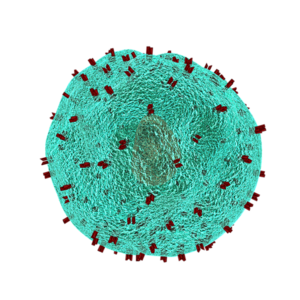Following the establishment of biosimilarity, there are no regulations that require manufacturers to perform quality or clinical studies to compare biosimilar versus originator products post-approval. In an investigation published in GaBI Journal [1], Dr Pablo Matar examined the concept of biosimilar manufacturing ‘drift’ and product divergence [2].
In the study, it is suggested that biosimilars introduce new challenges because over time, two products that were initially deemed biosimilar could each undergo unique patterns of variation due to manufacturing changes, resulting in two products that are no longer biosimilar. This would be an example of manufacturing drift leading to product evolution and divergence, and any loss of biosimilarity over time could have important implications for the way in which regulators and healthcare providers handle safety surveillance, product naming, interchangeability, and medical records.
The study examines the comparability concept. It is highlighted that during manufacture, cell culture and fermentation processes are particularly critical and sensitive in terms of defining the identity, purity and potency of the approved biological. Changes in any steps can impact cell culture performance, leading to variability in the quality of the biological product. However, such manufacturing changes often occur for both originators and biosimilar products; and these are assessed by agencies to ensure there is no impact on product safety and efficacy, but not to ensure biosimilarity is maintained post approval. The study highlights the case of divergence in epoetin alpha biologicals and biosimilars [3].
Some other examples of product drift have been noted and have led to proposed biosimilars not being approved, such as Prestige’s Herceptin (trastuzumab) biosimilar that was withdrawn from the approval process in Europe [4, 5].
In cases where divergence in potency, safety and immunogenicity may be present, the study stresses that care should be taken with multiple switches between reference and biosimilar products, noting that each time a switch occurs, the difference between products could be greater. It is noted that post-marketing comparative biosimilarity validation is not required, which means that drift, evolution and divergence may present greater challenges when assessing biosimilars.
In conclusion, it is suggested that pharmacovigilance systems are strengthened to consider product evolution and divergence over time and interchangeability standards should be redefined to consider drift and divergence. This is of particular importance in a marketplace with multiple biosimilars of a given reference product. In this context, it is stressed that it would be essential that regulatory agencies adopt measures to minimize the risk of possible adverse events or lack of efficacy of treatments with biosimilars due to divergence.
GaBI Journal Citation Impact
2.2 – CiteScore 2021 (calculated on 5 May 2022)
2.4 – CiteScoreTracker 2022 (Last updated on 5 November 2022)
Submit a manuscript to GaBI Journal
Related articles
Endpoints to assess interchangeability for biosimilars
Quality and clinical performance of biopharmaceuticals
|
LATIN AMERICAN FORUM
The new section of the ‘Latin American Forum’ on GaBI has been launched. The objective of this new section is to provide you with all the latest news and updates on developments of generic and biosimilar medicines in Latin America in Spanish. View the latest headline article: Hechos clave en la regulación de la aprobación de biosimilares en Brasil Browse the news in the Latin American Forum! Register to receive the GaBI Latin American Forum newsletter. Inform colleagues and friends of this new initiative.
FORO LATINOAMERICANO
Se ha lanzado la nueva sección del ‘Foro Latinoamericano’ sobre GaBI. El objetivo de esta nueva sección es brindarle las últimas noticias y actualizaciones sobre desarrollos de medicamentos genéricos y biosimilares en América Latina en español. Ver el último artículo de cabecera: Hechos clave en la regulación de la aprobación de biosimilares en Brasil !Explore las noticias en el Foro Latinoamericano! Regístrese para recibir el boletín informativo GaBI Foro Latinoamericano. Informe a colegas y amigos sobre esta nueva iniciativa.
|
References
1. Matar P. Biosimilarity is not a transitive property: implication for interchangeability, naming and pharmacovigilance. Generics and Biosimilars Initiative Journal (GaBI Journal). 2022;11(1):36-40. doi:10.5639/gabij.2022.1101.006
2. GaBI Online - Generics and Biosimilars Initiative. Is a biosimilar forever or just for Christmas? [www.gabionline.net]. Mol, Belgium: Pro Pharma Communications International; [cited 2022 Nov 25]. Available from: www.gabionline.net/reports/Is-a-biosimilar-forever-or-just-for-Christmas
3. Locatelli F, Del Vecchio L, Pozzoni P. Pure red-cell aplasia “epidemic”–mystery completely revealed? Perit Dial Int. 2007;27(Suppl 2):S303-7.
4. GaBI Online - Generics and Biosimilars Initiative. Forwards for Formycon’s Keytruda and backwards for Prestige’s Herceptin [www.gabionline.net]. Mol, Belgium: Pro Pharma Communications International; [cited 2022 Nov 25]. Available from: www.gabionline.net/biosimilars/news/forwards-for-formycon-s-keytruda-and-backwards-for-prestige-s-herceptin
5. GaBI Online - Generics and Biosimilars Initiative. EMA authorizations: CRO generics suspended and Herceptin biosimilar refused [www.gabionline.net]. Mol, Belgium: Pro Pharma Communications International; [cited 2022 Nov 25]. Available from: www.gabionline.net/pharma-news/ema-authorizations-cro-generics-suspended-and-herceptin-biosimilar-refused
Permission granted to reproduce for personal and non-commercial use only. All other reproduction, copy or reprinting of all or part of any ‘Content’ found on this website is strictly prohibited without the prior consent of the publisher. Contact the publisher to obtain permission before redistributing.
Copyright – Unless otherwise stated all contents of this website are © 2022 Pro Pharma Communications International. All Rights Reserved.








 0
0











Post your comment